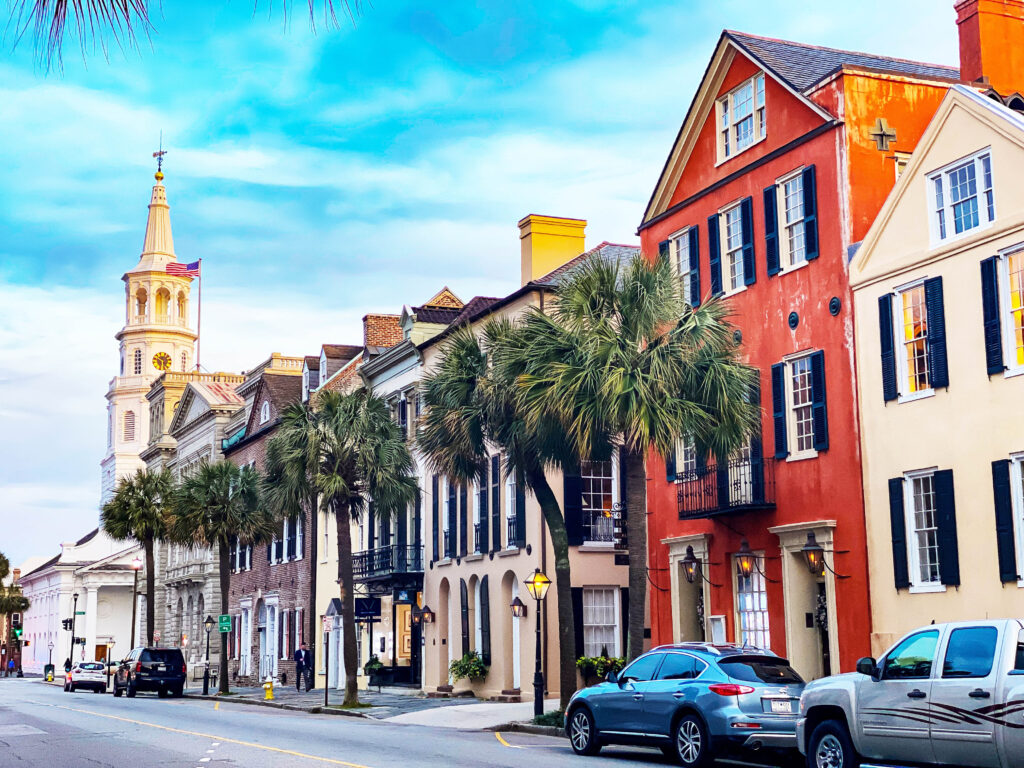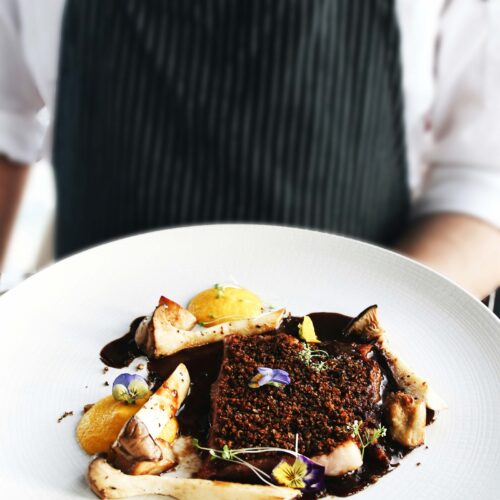Discover Charleston’s Fascinating History, Food Scene and Ghost Tours!

Charleston, South Carolina is located in the southeastern region of the United States, known for its rich history, beautiful beaches, and Southern hospitality.
From this picturesque city with its historic architecture and vibrant culture to the Grand Strand’s miles of white sandy beaches and the rolling hills of the Upstate, South Carolina offers visitors diverse experiences.
Here are eight great things to do:
- Visit the historic Charleston City Market: This market has been a staple of the town since the early 1800s and is a great place to find unique gifts and souvenirs. You can also try local foods like boiled peanuts, fried green tomatoes, and sweet tea.
- Take a stroll along The Battery: The Battery is a seawall and promenade along Charleston Harbor. It offers beautiful views of the harbor and historic homes and access to some of its most notable landmarks.
- Tour the historic homes: Known for its stunning historic homes, many of them are open to the public for tours. Some notable homes include the Aiken-Rhett House, the Nathaniel Russell House, and the Edmondston-Alston House.

- Explore the Charleston City Market Artisan’s Market: This outdoor market features local artisans selling handmade crafts and goods, including jewelry, pottery, and paintings.
- Visit the South Carolina Aquarium: The South Carolina Aquarium is home to over 5,000 animals, including river otters, sea turtles, and sharks. There are also interactive exhibits and educational programs for all ages.
- Take a ghost tour: Charleston is known for its haunted history, and many ghost tours are available that will take you through the city’s most haunted spots. These tours are a fun way to learn more about its history and folklore.
- Visit Fort Sumter National Monument: Fort Sumter is the site of the first shots fired in the Civil War, and visitors can take a ferry to the island to explore the fort and learn more about the history of the Civil War.
- Sample Lowcountry cuisine: Charleston is known for its unique Lowcountry cuisine, which blends African, European, and Native American influences. Some popular dishes include shrimp and grits, she-crab soup, and hushpuppies.
TIP: Don’t ride the horse-drawn carriages. Many horses have died due to poor care.
Did you know?
Charleston is home to the oldest museum in the United States. The Charleston Museum, established in 1773, is the first museum founded in America.
The museum features a diverse collection of artifacts and exhibits related to the history, culture and the Lowcountry region, including Civil War artifacts, antique clothing, and traditional sweetgrass baskets made by local Gullah artisans.
It also has an extensive natural history collection, including fossils, minerals, and taxidermy specimens of native animals. So, if you’re a museum lover, the historic museum scene might be a must-visit destination.
A little history:
Charleston has a rich and complex history, dating back to its founding in 1670 by English colonists. Over the centuries, the city has played a vital role in many significant events in American history, including the Revolutionary War and the Civil War.

In the 18th century, Charleston was one of the wealthiest and most important cities in the colonies, with a thriving trade in goods like rice and indigo. The city’s economic success brought great prosperity to its white residents but also made it a target for invasion during the American Revolution.
During the Civil War, Charleston was a key site of conflict, with Union forces attempting to take control of the city and Confederate troops defending it. The town was subjected to a long and devastating siege, culminating in the bombardment and eventual surrender of Fort Sumter in April 1865.
In the following years, this town in South Carolina, struggled to rebuild and recover from the war but eventually emerged as a thriving center of industry, culture, and tourism.
Charleston is known for its beautiful historic architecture, vibrant arts and music scene, and unique Lowcountry cuisine, reflecting its complex history.


